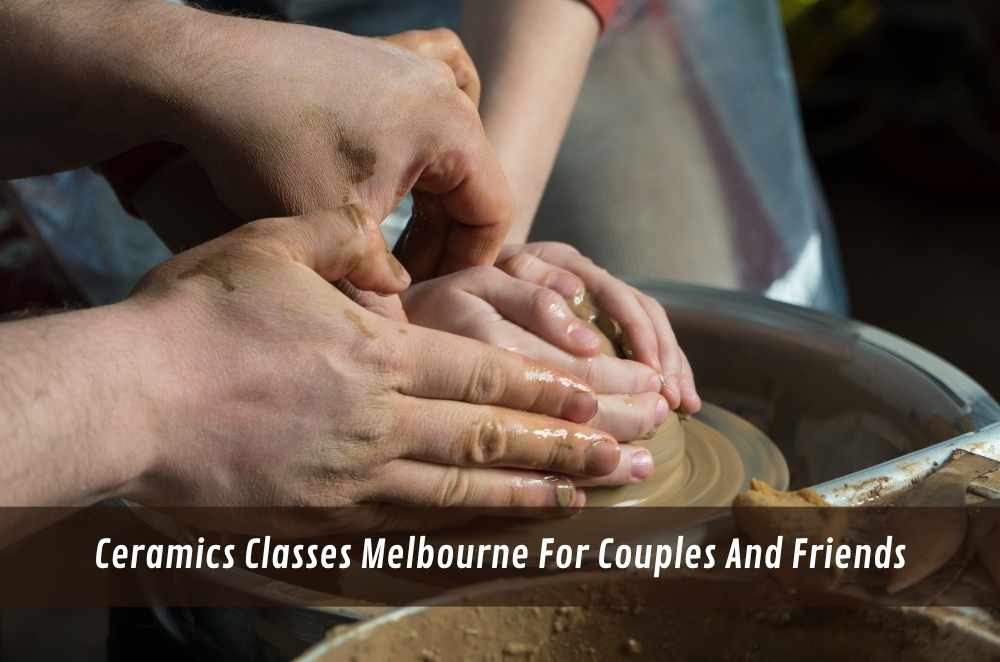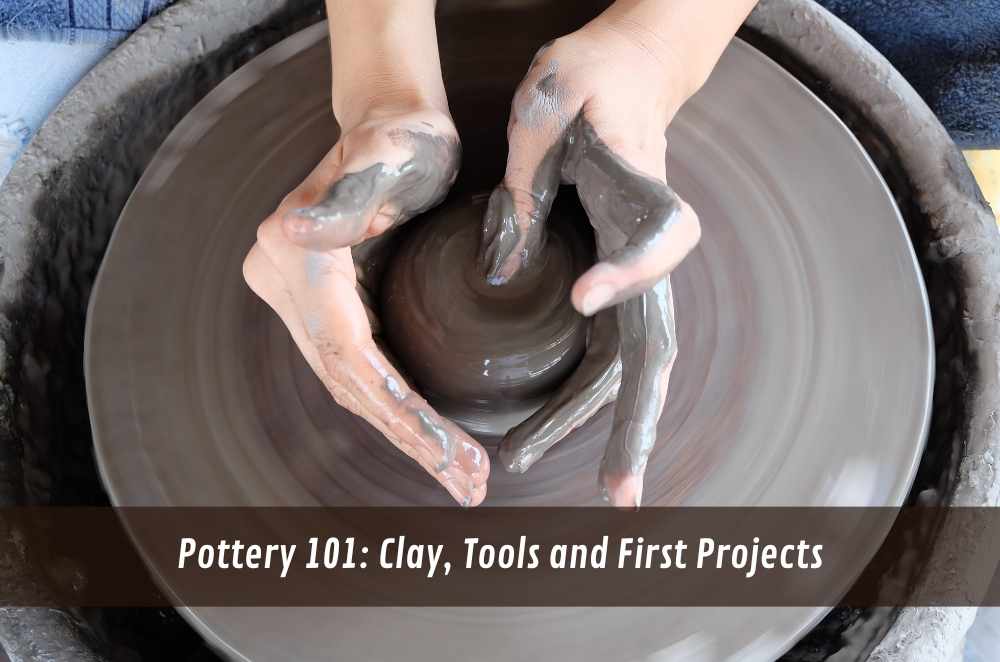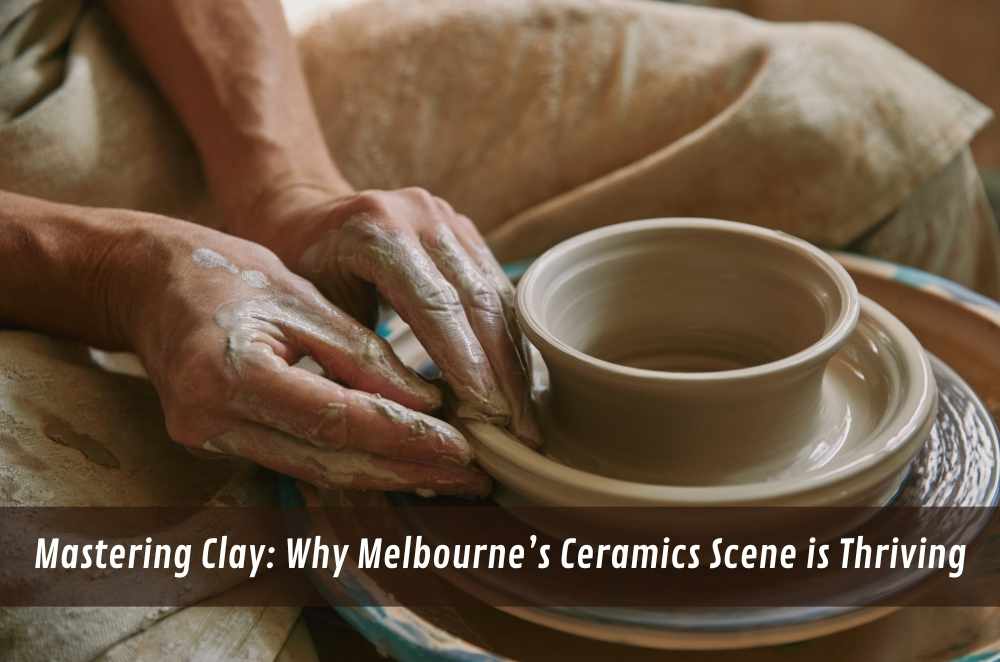
If you’ve ever thought about trying pottery, Melbourne is an amazing place to dive in. The first time I signed up for a ceramic workshop in Melbourne, I wasn’t sure what to expect. Would I make something decent? Would the people be friendly? Would it even be fun?
Turns out — it was one of the most rewarding things I’ve done. There’s something almost meditative about working with clay. I started with a casual weekend class, and the next thing I knew, I was attending regular sessions at a local pottery workshop.
If you’re considering giving it a try, here are a few things I wish I’d known before booking my first workshop.
Figure out what kind of experience you want
Not all pottery workshops are the same. Some are super casual — more like a “sip and sculpt” night out with friends. Others are proper courses where you’ll learn techniques like wheel throwing or hand-building over several weeks.
For me, the social vibe of my first class was a huge plus. But once I caught the bug, I wanted more structure, so I found a studio that offered multi-week courses.
Before you book, ask yourself:
Do you just want a fun night out?
Are you keen to really learn the craft?
Do you want to try wheel throwing or stick to hand-building?
Are you looking for a one-off class or an ongoing course?
Knowing your goals helps narrow down your options.
Choose a studio that’s easy to get to
I’ll be honest — the first workshop I booked was across town, because it looked cool on Instagram. But after battling peak-hour traffic to get there, I realised convenience matters.
Melbourne has fantastic studios in every pocket of the city. Find one that’s close to home or work. You’ll thank yourself when you’re lugging home your newly glazed creations!
Also consider:
Parking — is there plenty nearby?
Public transport — is it an easy tram/train/bus ride?
Class times — do they fit your schedule?
Don’t be afraid to visit or call first
One thing I started doing after that first class: visiting the studio or giving them a call before signing up.
A quick chat with the owner or teacher can tell you a lot about the vibe. Is it welcoming? Supportive? Are the class sizes small enough to get personal guidance?
When I switched studios, it was because the new one felt way more community-focused, and that made all the difference in my learning.
Some things to look out for:
Is the space clean and well-organised?
Are the kilns and wheels well-maintained?
Does the teacher seem enthusiastic and approachable?
Know what’s included (and what’s not)
This is a biggie — and something I learned the hard way. Not all workshops include everything in the base price.
Before you book, check:
Is clay included? (Most workshops supply it, but not always.)
Are tools provided, or do you need to bring/buy your own?
Is firing included, and for how many pieces?
Will you get to glaze your work, or will staff do it later?
Are there extra fees for extra firings or large pieces?
Studios that clearly explain this stuff up front are worth their weight in gold.
Support studios that value the arts community
I love finding studios that are more than just businesses — places that genuinely contribute to Melbourne’s creative scene. Some run community events, others get involved in open studio days, or even tap into arts and culture grants to offer subsidised workshops.
These kinds of studios tend to attract passionate teachers and foster a supportive learning environment. And let’s face it — it feels good to support local arts while learning something new yourself.
Start small — and see where it leads
One of the best tips I can give? Don’t overcommit too soon.
Try a one-off intro class first. You’ll get a feel for the studio, the teacher, and the whole process of working with clay.
In my case, I fell in love with it. After that first class, I signed up for a four-week course. Then I started going to open studio sessions. Before I knew it, I was experimenting with pottery painting and different glaze techniques.
Pottery can be wonderfully addictive — in the best way.
Think about the kind of pottery you’re drawn to
This is something a lot of beginners don’t realise at first — there are many styles and approaches to pottery.
Are you into:
Functional ware (mugs, bowls, plates)?
Sculptural pieces?
Wheel-thrown work?
Hand-built forms?
Surface decoration and painting?
If you’re curious about wheel work, for example, you might eventually want to take a dedicated wheel throwing class.
For me, discovering the joy of hand-building was a game-changer — I found I loved the organic feel of shaping clay without the wheel.
Final thoughts
If you’re on the fence about trying a ceramic workshop, just do it. Honestly, it’s one of the most relaxing and creatively satisfying things you can do.
To sum up:
Know what kind of experience you want
Choose a convenient studio
Visit or chat with them before booking
Understand what’s included in the price
Support studios that give back to the arts community
Start small and let your interest grow
Explore the styles that speak to you
And most importantly, don’t stress about being “good” at it. Pottery is about the process, not perfection. Some of my favourite pieces are the slightly wonky ones with character.
So go ahead — sign up for that workshop. You might just discover a new creative passion.








Write a comment ...